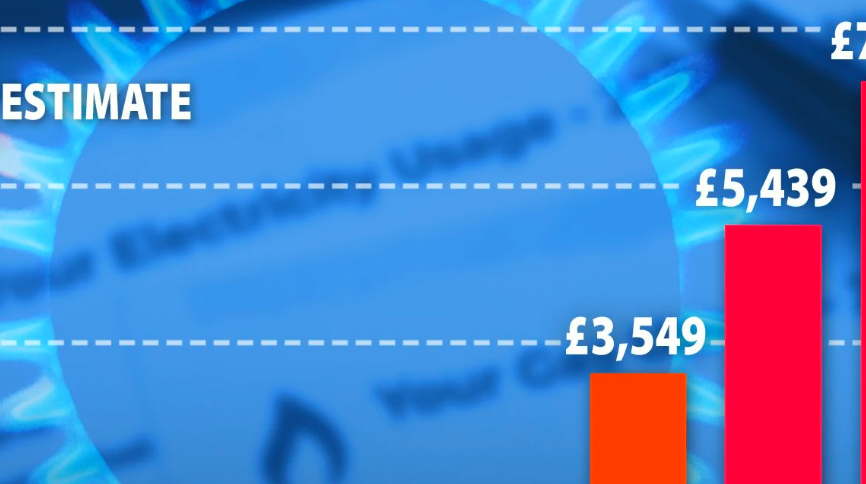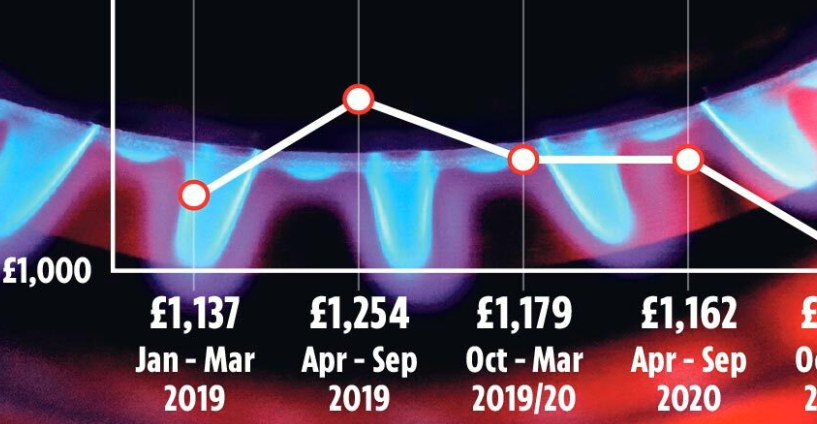If you live in England, Scotland, or Wales, your energy supplier cannot charge you more than the -mandated "energy price cap." Beginning October 1st, the limit was set to increase by another 80%, affecting an additional 24,000,000 people.
But beginning in October, for the next two years, the British government has capped typical energy expenses at £2,500. If the cap had been in effect, average costs would have increased by more than £1,000.
Why was a limit placed on energy costs?

Ofgem, the British government agency regulating electricity, implemented it in January 2019. It was in response to worries that many consumers, particularly those who did not shop around for better rates, were paying excessively high rates for their electricity.
Putting a restriction on prices every three months seems excessive. In a recent policy shift, Ofgem will conduct price cap reviews every three months, up from the previous frequency of every six months. It's doing this so utilities can more promptly modify customer bills in line with changes in wholesale energy costs. Hopefully, this will prevent any other energy companies from falling under.
Do I have any guarantees that the energy price ceiling will safeguard me?

Everyone who uses electricity or natural gas is excluded from the price cap. This rule is applicable if and only if No of how you choose to pay your energy bills, you will be placed on a default energy tariff. Defines a default energy tariff as a provider's most basic rate. A "standard variable" tariff is the most frequent. You should expect your supplier to notify you in writing of any price increases or decreases, along with a specified notice period. Any standard variable tariff must be lower than the ceiling rate.
Multiple names know the default rates of various energy providers. Find out from your energy provider what tariff you are currently on if you are unsure. Exceptions to the maximum allowed price are For the duration of your contract, your electricity rate will not change (i.e., a tariff with a fixed end date).
Certain green and time-of-use tariffs, like yours, are exempt from the price cap. Check your energy statement or get in touch with your provider if you're confused about the tax you're on. There's a good chance you're on a standard variable tariff if your previous provider went out of business and you were forced to switch to a new one. It's also likely that you're already on a regular variable tariff or will be changed to one of your fixed-rate contracts that have expired or are about to expire.
What is the mechanism behind the energy price cap?
A supplier's default tariff can only increase to the maximum allowed under the cap. This package deals with The current accusation (a fixed daily amount you have to pay for energy, regardless of how much energy you use).
The cost of energy in terms of pence per kilowatt hour (p/kWh) for electricity and gas Ofgem cites the average annual energy use of a home, or 12,000 kWh, as an example. This number may appear in the media. To see how the new price cap would affect the annual energy bill of a typical American home, utilize this estimation. Because everyone's energy consumption habits are unique, no two homes will have the same energy bill.
Several other variables may also affect the amount your energy provider will charge you for their services under the price cap. Many factors come into play, such as where you reside, how you pay for electricity, and the kind of meter you have in your home.
The graph below compares the average annual operating costs of various housing types as of April 1st, 2018, with those expected for April 1st, 2022. To locate your desired real estate niche, toggle between the available tabs.
Can I get assistance with my monthly energy costs?
We recognize that the hike in the energy price cap may cause concern for many families. Here at Energy Saving Trust, we want to be of assistance. With our help, millions of homeowners have already reduced their energy consumption and saved thousands of dollars.
From October on, as part of a package of aid from the UK government, every household will receive £400 off their expenses, spread out across six monthly installments from October to March of 2023. No matter where you are in the United Kingdom, assistance is available if you are having trouble paying your energy bills. Learn more and locate local resources here.
The following pointers may be useful if you want to reduce energy consumption at home and save money on utility costs.

Best Place to Buy Used Furniture Estate Sales

Selling a Car

From Coverage to Claims: A Complete GEICO Life Insurance Review

How to Claim Boyfriend/Girlfriend as a Dependent on Tax Return

Roth IRA Versus 401(k): A Detailed Comparison

All About the Top Scholarships for Nursing Students

All About Test Driving of a Car

Tax Credit for other Dependents

Ways to Refresh Your Budget for the New Year

A Detailed 2024 Review on USI Affinity Travel Insurance

Best Business Loans for Bad Credit
